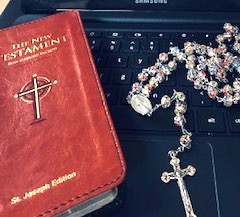 What is the writer’s voice?
What is the writer’s voice?
It is that special magic that agents and publishers look for. The literary agent, Rachel Gardner, defines the writer’s voice like this: “Your writer’s voice is the expression of YOU on the page.”
It is the essence of the author and reflects the writer’s personality, views, and sense of self. It is unique because every author is unique. It is not some magic that the writing fairy sprinkles on want-to-be authors. It is only found inside. Whether you know it or not, you have been developing your voice all your life. Are you an optimist or a pessimist? Are you out-spoken or shy? All of these traits are part of your voice,
What is your unique voice?
No other author has your voice. If I asked five authors to describe a scene, the same scene, not one of them would match the other’s description. One might describe the colors, another the weather, another the sounds. I’m sure you have a favorite author whom you follow. You would recognize that the author’s voice even if you picked up a loose page without a cover. They are unique. Why? Because they are themselves. Are you yourself when you write? Most new writers are not. They haven’t found their voice. Think about who you are. Are you serious or do you have a sense of humor? Ask your friends to describe your personality and you might be surprised to find out who you are. If someone with a fun-filled personality tries to write a serious piece that little bit of humor will shine through. If someone with a workaholic, type-A personality tries to write an article on leisure, that sense of responsibility comes out. Your voice is there whether you recognize it or not – your readers will.
Can you change your voice?
You can change your voice. My voice is different when I write my children’s books than when I write a novel. It changes with my intended audience. However, I am still there on every page. I can’t help but add a joke or two. I can’t hide my optimism. It is who I am. My characters may all be different, but each one reflects a part of me. Your characters will also. Sometimes, its fun to discover myself in the characters I create. It is often very insightful to find some personal traits on the pages of my books. Even if you don’t recognize them, your readers will.
How do readers recognize your voice?
What tone do you write in? Are your sentences short and to the point? Or do you meander around your main point with long, drawn-out sentences and flowery language? What is the rhythm or the beat of your words? You use one, but do you know what it is? There is no right or wrong. It is simply who you are. In other words, it’s your writer’s voice.
New writers often use other writer’s voices. Stephen King, in On Writing, describes a process that he went through.
“You may find yourself adopting a style you find particularly exciting, and there’s nothing wrong with that. When I read Ray Bradbury as a kid, I wrote like Ray Bradbury—everything green and wondrous and seen through a lens smeared with the grease of nostalgia. When I read James M. Cain, everything I wrote came out clipped and stripped and hard-boiled. When I read Lovecraft, my prose became luxurious and Byzantine. I wrote stories in my teenage years where all these styles merged, creating a kind of hilarious stew.”
That is fine when you start to write.
Why must I find my voice?
An author is cheating the craft and the reader if he or she fails to use their real voice. How do you find your voice? Stephen King points out:
The best way to develop your writer’s voice is to read a lot. And write a lot. There’s really no other way to do it.
I agree. Read, read, read! What you like to read gives you a hint of what you are interested in. Next! Write, write, and write some more. The more you write, the more honest you become with yourself. For you see, it is all about finding your true self. We are so used to presenting a false face to the world. So many of us give our public or publisher what we think they want to see. Instead of being part of the crowd on the shoulder-to-shoulder march down the highway of life — be yourself. Don’t follow, but instead lead and attract your own set of devoted readers. If God has given you the gift of writing, he has also given you the gift of voice. How do you see the world? Who is your audience? That’s your voice! Pick up your pen or open your laptop and use it.